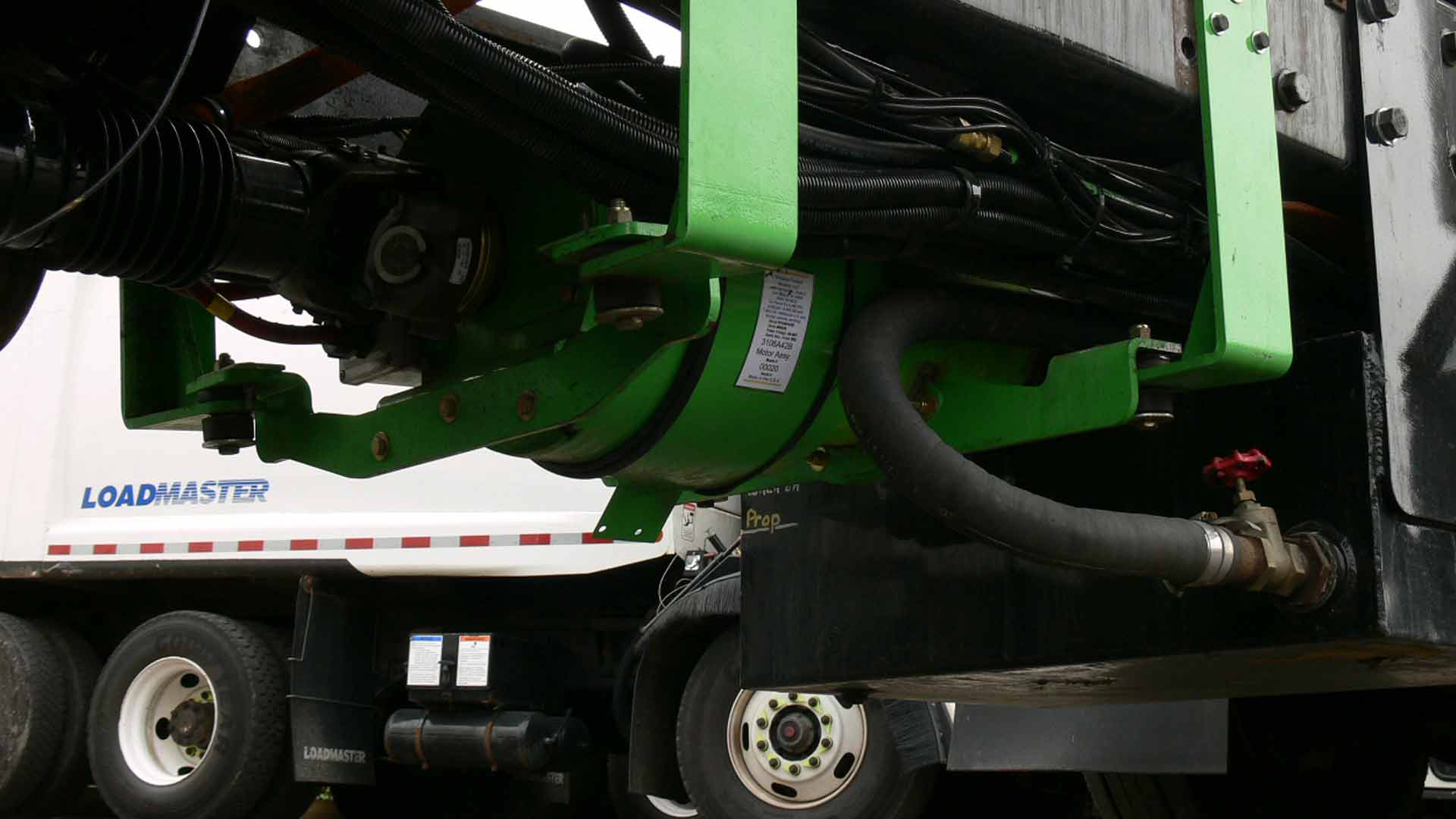Minneapolis, Minn. — Nearly every morning, a barely-noticed battalion of trucks crisscross the streets and alleys of Minneapolis gobbling up glass, plastic, aluminum and other recyclables from residents’ curbs. The city’s fleet of 14 snub-nosed, white trucks all look the same — with one
notable exception.
One of the trucks has gone ‘green.’ It runs on biodiesel and a hybrid drive system, bolted to its drive shaft. When the truck decelerates, the motor generator produces energy that is stored in a capacitor. When the truck accelerates, energy from that capacitor gives the diesel engine a boost.
The demonstration system is intended “to reduce both fuel consumption and emissions,” says Kelly Strebig, research engineer for the University of Minnesota’s Center for Diesel Research, which is conducting a study on the hybrid drive combined with biodiesel.
The diesel research center started the study in July and chose a recycling truck because it starts and stops constantly.
Detachable systems
Besides testing the hybrid drive technology, researchers are evaluating its use with 5 and 20 percent biodiesel fuel blends. “We want to see how the system works and test how biodiesel works with this new technology,” Strebig says.
The hybrid drive system, produced by Variable Torque Motors of Indiana, is designed for shuttles and school buses. Unlike vehicles manufactured with hybrid drive systems, this bolt-on technology can be added to existing vehicles by removing a section of the drive shaft. It can also be removed from one vehicle and attached to another.
Brake light
Reduced brake wear is an added benefit, Strebig says. Since the system uses a generator to produce energy while the vehicle decelerates, the added draw slows the vehicle.
“There are times when a driver barely has to touch the brakes on their entire route,” Strebig says. He expects this will save money and reduce brake dust in residential areas.
The study, supported by the Minnesota Soybean Research and Promotion Council, Minnesota Department of Commerce and AURI, should be completed by fall 2011.
Besides improving vehicle performance and reducing emissions, “we are looking at technologies … that improve the market for biodiesel,” says Dennis Timmerman, AURI project director. “The hybrid drive system does all these for municipal vehicles.”
